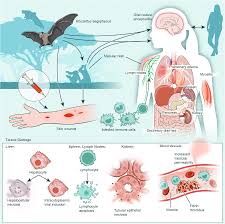A new study published in the Journal of the American Heart Association reveals that drinking multiple cups of coffee a day could help prevent cognitive decline in individuals with atrial fibrillation (AFib). This research challenges previous assumptions and offers hope for people with this common heart rhythm disorder, which affects millions of adults worldwide.
Dr. Jürg H. Beer, senior author of the study and professor at the University of Zürich, emphasized the positive implications of the findings. “Many myths surround coffee consumption, but our study found no reason to discourage or forbid a patient with AFib from drinking coffee. Instead, we say, ‘Enjoy, it may even be good for you,’” Beer stated.
Atrial fibrillation is the most prevalent heart rhythm disorder, impacting over 5 million Americans, according to the American Heart Association. The 2023 guidelines for AFib management state that avoiding caffeine to prevent heart rhythm disturbances is not necessary for most people with AFib. However, it also mentions that some individuals may find relief from symptoms by cutting out caffeine.
Coffee and Cognitive Health in AFib Patients
The study, led by Dr. Massimo Barbagallo, a neuro-intensive care unit resident at University Hospital Zürich, aimed to investigate whether regular coffee consumption could mitigate the increased risk of cognitive decline in those with AFib. Prior research has shown that coffee boosts cognitive performance in healthy individuals, but AFib is known to independently raise the risk of dementia and other cognitive issues.
Dr. Barbagallo explained, “The question is whether coffee might offset the increased risk of cognitive impairment in people with AFib.”
The study analyzed data from the Swiss Atrial Fibrillation Cohort Study (Swiss-AF), which includes more than 2,400 AFib patients in Switzerland. Participants reported their coffee consumption and underwent several cognitive tests, while researchers also assessed markers of inflammation, a common factor in both AFib and Alzheimer’s disease.
Findings and Implications
The results were striking:
- Higher coffee consumption was associated with better cognitive test scores.
- Individuals who drank more coffee showed significant improvements in processing speed, visuomotor coordination, and attention—by 11% compared to non-coffee drinkers.
- Cognitive age was calculated to be approximately 6.7 years younger in participants who consumed the most coffee versus those who drank the least.
- Inflammatory markers were found to be more than 20% lower in participants who drank five cups of coffee daily compared to those who drank less than one cup.
Researchers noted a consistent “dose-response” relationship, meaning that the more coffee participants drank, the better their cognitive performance and the lower their inflammation markers.
Caffeine’s Role and Further Research Needed
While the study suggests coffee may have protective effects against cognitive decline in AFib patients, experts caution that the research cannot yet prove that coffee directly prevents long-term cognitive impairment. Dr. José A. Joglar, chair of the 2023 joint AFib management guidelines, highlighted that this observational study does not establish a cause-and-effect relationship. “We cannot conclude that coffee prevents long-term cognitive decline,” said Dr. Joglar. “However, coffee does not seem to worsen AFib, so there is no need to stop drinking it.”
The study’s limitations include its cross-sectional design, which means that it measured coffee consumption and cognitive performance at a single point in time, without evaluating long-term changes. Additionally, the study population was predominantly white and from Switzerland, where espresso is commonly consumed, which may not fully represent the broader global population.
Conclusion
While the findings are promising, more long-term studies are needed to determine whether regular coffee consumption can truly prevent cognitive decline in people with AFib. As it stands, the study provides a hopeful message for coffee lovers with AFib, suggesting that moderate coffee intake may be part of a healthy lifestyle, potentially offering cognitive benefits while not worsening heart health.
For now, the advice from researchers is clear: enjoy your coffee—within reason.












